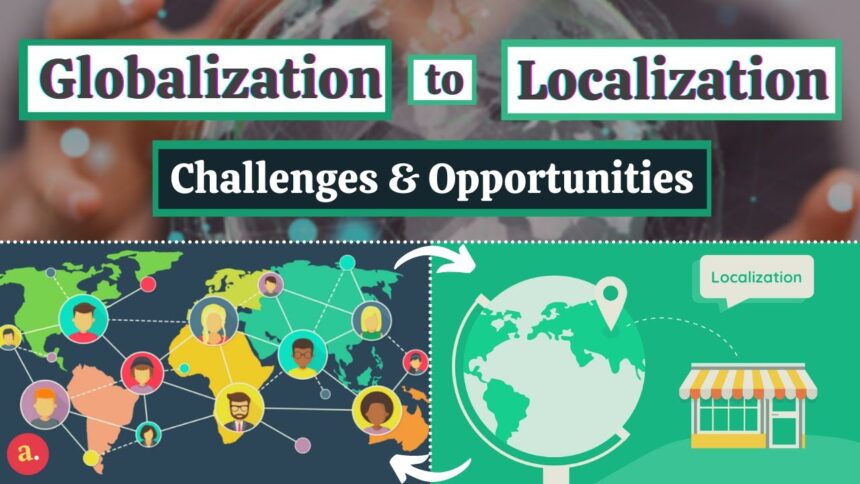Localization is a very powerful key for brands and businesses which helps them cater to a secluded group of audience. It helps in drawing the attention of the audience and showcasing them how important they are for the brands. When it comes to the localization of apps, using the best software localization services is the best ever solution. We all know too well how translation and localization of an app work, translation works on the textual content while localization (which we will discuss later) is about working on each and every part of the app. One thing that often confuses the audience is how the localization of an app is different from its globalization. Both of them are entirely different concepts and the processes which are involved in these methods are also distinct from each other.
In this read, we are going to talk about both localization and the globalization of apps in detail. Other than that, we will also be focusing on the debate that revolves around these two concepts, stating what is essential for your app.
Software Localization
In simple terms, software localization is adapting an app or web application as per the target audience. This audience refers to a specific group of people whose language and culture are the same. It also includes working on the graphic and display elements of the app, hence to make sure that it is easy for the audience to understand the layout of the app. It also involves working on certain buttons and widgets of the app, to ensure easy accessibility for the target users. A legitimate software localization company is one that facilitates the process of software localization and also makes sure that professional and certified translators get the job done.
Software localization is all about modifying the web application to guarantee that it resonates with the needs of the target consumer base. Images, buttons, symbols, currency systems, date formats, etc, all need to align with the local demands.
Globalization of App
Globalization of an app refers to designing an app in such a way that audiences on a large scale can understand and use it. App companies who wish to make their app a global phenomenon, seek globalization which translates your app for global and diverse audiences. The scope of globalization reaches many economies because the whole point of making an app global is to enter different markets at once and increase awareness and recognition for your app.
The goal is to generate huge amounts of revenue to lure app companies to international markets where they render valuable services to the target audiences in their native language. Hence, globalization bestows app businesses the gaze of potential customers and that’s how an app becomes global. For instance, Snapchat, Gmail, and Instagram are global apps. Here we must thank professional translation services for keeping these apps within easy reach of the audience.
What is Essential for Your App?
People often mix app localization with globalization. The end goal of both processes is the same, app companies want their apps to be famous and generate revenue as they get fame. However, the way they cater to the audience is the main thing that brings differences in them.
Globalization of an app means that the app is designed for different regions and cultures. It introduces a general translation of the app that can cater to a bigger audience. For instance, if your app is in Chinese and you translate it into English, more than 1.35 billion can understand it. So when it comes to globalization, app companies seek translation as it helps them cater to a large audience with a mere language conversion. So if you want your app to cater to a diverse audience who speak the same language and cultural differences aren’t too big, it is best to go for the translation of your app.
Mobile application localization services are responsible for making an app exclusively for one market, or one group of audience. For instance, English is spoken by more than 1 billion people, right? But cultures are different, as not all English speakers follow one culture. So for diverse cultures, apps are localized. If you want your app to cater to a specific group of audience and make sure that the app sounds personal to them, localization is the wise choice for you.
- Localization makes sure an app sounds native to the audience, while globalization has nothing to do with it.
- Localization is integrated into an app when it is ready for the market, while globalization is inserted in the early stages of app development.
- Localization deals with deep resonation of the app with the target audience while globalization makes it easily scalable across different markets.
Final Words!
To sum up, software localization and globalization are two different things that both aim to make apps a huge hit in the market. Both of them are essential for your app business if you wish to provide consumer-centric services. You just need to remember the factors involved in both processes.








